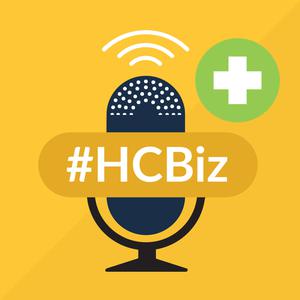
The #HCBiz Show!
Don Lee and Shahid Shah
Unraveling the Business of Healthcare
- 45 minutes 51 secondsChatGPT: Where (and Where Not) to Apply it in Healthcare
On this episode, we talk with Matt Hollingsworth, CEO of Carta Healthcare, about ChatGPT.
If you've been reading the headlines, and maybe even experimenting with Chat GPT yourself, but don't quite grasp what's going on, then this episode is for you.
Mat gives a not-too-technical, high-level explanation of what's going on under the hood so that you have proper context for the discussion.
Then, Matt outlines the potential benefits, and potential harms, of applying ChatGPT in healthcare.
Finally, Matt shares his experience launching Carta Healthcare, including how he convinced VCs that software plus services could scale better than a pure SaaS offering in this space.
This is a good one. I'm honestly not sure in which part of this conversation I learned more.
26 June 2023, 6:32 pm - 48 minutes 37 secondsMedicaid Transformation: Past, Present, and Future with Alan Weil of Health Affairs
Medicaid Transformation. 1115 waivers. Delivery System Reform Incentive Payment (DSRIP) programs. Expansion. Contraction. We’ve been at this for a long time. Why isn’t Medicaid transformed already?
Well… it turns out that this is really difficult work.
First off, there are complex political and ideological issues. Even if we all agree that we want the best healthcare for every American – a conceptually easy outcome to rally behind – we don’t all agree on what that looks like, how to get there, or how to pay for it.
Second, it takes a long time for policy levers to play out in the real world. That makes it exceedingly difficult to measure the success of our programs, which further exacerbates the first issue.
Add in a bunch of multi-billion-dollar entrenched institutions, technology hurdles, and social determinants of health, and you are still just scratching the surface of the many issues that need to be addressed and aligned to “succeed”.
But all is not lost. We’ve learned a lot over the past 30-40 years, and we’ve made progress in many areas. There are approaches and mental models that have led to certain levels of success. And today’s guest has been participating in and observing many of them over the past few decades.
Today we talk with Alan Weil, Editor-in-Chief of Health Affairs, the nation’s leading health policy journal.
Alan takes us through the history of Medicaid Transformation from the early 1980s on. We discuss the approaches taken, the thinking behind them, and the many factors that influenced their success. We explore the conflicts and hurdles, the friction and confounders, not to define a path forward, but to give the listener a more productive framing from which to build.
This is admittedly a bit more of a philosophical discussion than what we usually have on this show. However, I feel we’ve taken a practical approach to the philosophical exploration and yielded actionable advice on how to adjust your frame.
Please do let us know what you think!
For full show notes and links, visit: https://thehcbiz.com
And of course, find everything from Health Affairs at: https://www.healthaffairs.org/
12 April 2023, 4:07 am - 35 minutes 46 secondsShould Patients Be Charged for Messages to their Doctors?
Cleveland Clinic recently announced that they would begin charging for certain patient-initiated messages. This flies in the face of everything the industry is talking about when it comes to patient engagement and value-based care.
At the same time, it is quite unreasonable to think that a doctor should be available for questions at any time, for free.
How can we protect the clinicians' time AND provide the patients with the care and attention they need?
And why are we moving away from value-based care?
Craig Joseph, MD, Chief Medical Officer of Nordic Consulting Partners, and Matt Lambert, MD, Chief Medical Officer for Curation Health join Don Lee to share their take.
Craig's article that led to this episode: To charge or not to charge
For full show notes and links, visit https://thehcbiz.com
9 February 2023, 8:59 pm - 49 minutesTake it All With a Grain of Salt
Don and Shahid discuss NCQA's Health Innovation Summit (November 2022) and FHIR Dev Days (June 2022). They explore these events as examples of how to interpret what you hear at conferences, in industry media, and even on podcasts like this.
The discussion covers a lot of ground including:
- What is NCQA?
- What is HEDIS?
- What does it mean to move from Electronic Clinical Quality measures (ECQM) to Digital Quality Measures (DQM)?
- Can FHIR really do all that!?
- Specified, but not implemented (this is important)
- Why is it hard to innovate and sell innovations in the quality measure space?
- How are health equity and social determinants of health factoring into quality measurement?
It's a fun conversation, but... take it with a grain of salt.
13 January 2023, 4:08 am - 51 minutes 42 secondsThe State of Blockchain and Web3 in Healthcare with Ray Dogum
On this episode, we talk with Ray Dogum, MS, MBA about the state of blockchain and web3 technology in healthcare. Ray is the producer and host of the Health Unchained podcast where he discusses blockchain developments in healthcare with industry experts.
There was quite a hype cycle around blockchain in healthcare that has died, but there is still real development being done and plenty of opportunity to create value in the future.
We’ll break down the pockets of success that are happening today and talk about where things could be headed in the future.
For complete show notes and links visit: https://TheHCBiz.com
16 December 2022, 4:41 am - 32 minutes 48 secondsCan I Buy You Lunch (and tell you about my product)?
Some people tell doctors that anything more than a cup of coffee is a conflict of interest. What about executives? Is it ok to take them out to lunch? What about a trip to the Super Bowl? Is there a line? Where is it?
On this episode, Don and Shahid discuss a recent LinkedIn discussion where a healthcare executive called shenanigans on himself and his colleagues for accepting gifts.
The gift is a symptom... not the underlying issue.
Tune in to find out what the issue is and how to fix it. Plus, learn why Don hates RFPs and how we can do those better too.
20 October 2022, 11:05 pm - 45 minutes 33 secondsThe Business Case for Being Patient-First with Brian Sanderson
There's no business case for doing the right thing in healthcare. Fortunately, being patient-first is the right thing to do and can be good for business too.
Today we talk with Brian Sanderson, national healthcare management leader at Crowe LLP and author of the new book, The Patient-First Revolution. In it, Brian provides a blueprint for hospitals to skyrocket net revenue by boosting patient experience (#HCBiz listeners can grab a free copy of the book here).
Brian explains it's important to think about more than short-term financials. Yes... you need to operate efficiently and run a sound business… those are table stakes. The hospitals and health systems that take it to the next level will do so by playing the long game and being patient-first.
This conversation continues our ongoing exploration of the Healthcare Delivery Organization Innovation Lifecycle Ontology (HDO-ILO). Brian helps us understand how to make the case for prioritizing patient-first practices and how to set and manage expectations within the organization. This, of course, is a critical early step for any healthcare innovation effort.
For full show notes and links, visit https://thehcbiz.com
5 October 2022, 1:46 pm - 28 minutes 42 secondsBuilding an Innovation Lifecycle Ontology
It's easy to experiment with new tech and produce products that look and sound innovative. It's much harder to tie your innovation efforts to strategic objectives with measurable outcomes and then scale the solution across your organization. The former leads to "death by pilot". The latter makes a difference in people's lives.
We need a more disciplined approach to innovation if we want to make a difference.
In this episode (Ep. 201) we introduce the concept of the Healthcare Delivery Organization Innovation Lifecycle Ontology or HDO-ILO. That's a fancy way of saying that we are attempting to codify what we've learned over the past 200 episodes and through our decades of Health IT / Digital Health innovation experience.
You can find the current draft here:
Healthcare Delivery Organization Innovation Lifecycle Ontology (HDO-ILO)
Our goal is to help the industry move from a haphazard way of innovation to one that is more thoughtful, deliberate, targeted, measurable, and repeatable.
And we need your help!
There are several asks for the community throughout this episode. Please send us your ideas and experiences. We'll bring you on to share them with the #HCBiz community and we'll incorporate them (with credit) into the HDO-ILO.
Let's innovate on purpose, and with purpose. Together...
Find more at: https://thehcbiz.com/201-building-an-innovation-lifecycle-ontology/
Watch this episode on YouTube
16 September 2022, 1:25 pm - 53 minutes 17 secondsEpisode 200!!! What's Next for the show?
On this episode, Don Lee and Shahid Shah celebrate 200 episodes of The #HCBiz Show!
We discuss what we've done over the past 6 years and tell you where we're headed next.
In a nutshell, we're going to work to codify what we've learned about innovation in healthcare over the past 200 episodes and in our decades of deploying digital health solutions.
We're steering the effort, but we need your help. There will be plenty of ways to get involved.
Thanks for learning with us over the past 200 episodes. Here's to 200 more!
Oh... and we're on YouTube now too if you prefer the visuals: The #HCBiz Show! - YouTube
Learn more at https://TheHCBiz.com
8 September 2022, 2:10 pm - 50 minutes 55 secondsPutting Ambient Intelligence into the Clinical Workflow at Scale with Peter Durlach
There’s no shortage of development when it comes to AI and ML in healthcare. The technology is already powerful and continues to advance. The challenge, as always, is getting things into the clinical workflow. And doing so at scale.
Nuance has a plan to help innovators and health delivery organizations find alignment and get the right tools integrated into the clinical workflow quickly.
Nuance started with ambient intelligence in the sensory realm. In computing, ambient intelligence (AmI) refers to electronic environments that are sensitive and responsive to the presence of people. Today, Nuance’s Dragon Ambient eXperience (DAX) can capture and code the natural conversation as it occurs between doctors and patients. Soon, ambient sensor tools will be able to see what’s going on in the exam room too.
Building on the sensory tools, Nuance’s somatic ambient intelligence will allow AI to help doctors understand what’s happening inside the body too. And that starts with imaging.
The Nuance Precision Imaging Network (PIN) is designed to integrate imaging insights into the broader healthcare ecosystem and facilitate the use of AI to inform precision diagnostics and therapeutics. In short, Nuance is allowing innovators to deploy their models on top of existing infrastructure in healthcare delivery organizations across the country. And in doing so, they are making it much easier for healthcare delivery organizations to experiment with these models. A real win-win that could accelerate the integration of ambient intelligence into the clinical workflow.
On this episode, we talk with Peter Durlach, Executive Vice President, and Chief Strategy Officer at Nuance, about the technology, the strategy, and the roadmap. Plus, we discuss the AI Collaborative Nuance launched with The Health Management Academy.
Full show notes and links: https://thehcbiz.com/199-ambient-intelligence-peter-durlach/
25 August 2022, 8:57 pm - 49 minutes 16 secondsCare Pays Back: Addressing the Social Determinants of Success in Healthcare Education with Dr. Rebecca Sarlo
It is now widely accepted that socioeconomic issues like food, housing, transportation, and more, directly drive health outcomes in the U.S. These issues hinder access to quality healthcare, and create obstacles to education and stable employment. In the former context, they are often referred to as the Social Determinants of Health. In the latter context, we might consider them the Social Determinants of Success.
One organization that sees it this way is Ultimate Medical Academy (UMA) – a nonprofit healthcare educational institution based in Clearwater, Florida. UMA has instituted what it calls a “culture of care”. That means they are fully committed to addressing the socioeconomic issues that make it difficult for students to apply, attend, and learn at their schools. UMA is committed to providing the support its students need to thrive inside and outside of school.
The culture of care is grounded in a commitment to diversity, community development, and a lifetime of support pledge to every student.
They do this, of course, because it is the right thing to do. But it is also perfect for business! Good for their business as the word of mouth from past students becomes a powerful recruiting tool. And good for the business of health care too. After all, their students will know firsthand the value of receiving this type of support and they will bring it into the healthcare workforce with them. Who better to fix our SDOH issues than those who have already overcome them?
We discuss this, and much more with Rebecca Sarlo, Associate Vice President, and Director of Ultimate Medical Academy’s Clearwater Campus where she oversees both the academic and operational functions at the campus.
For full show notes and links, visit https://TheHCBiz.com.
10 August 2022, 4:09 am - More Episodes? Get the App
Your feedback is valuable to us. Should you encounter any bugs, glitches, lack of functionality or other problems, please email us on [email protected] or join Moon.FM Telegram Group where you can talk directly to the dev team who are happy to answer any queries.
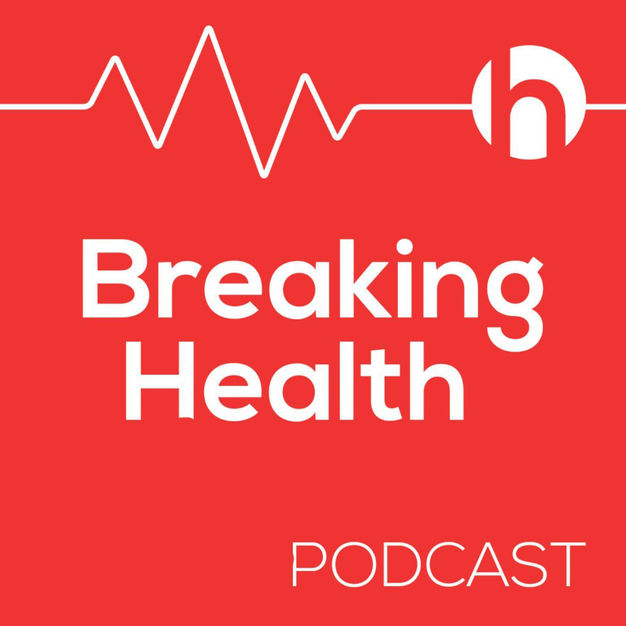 Breaking Health
Breaking Health
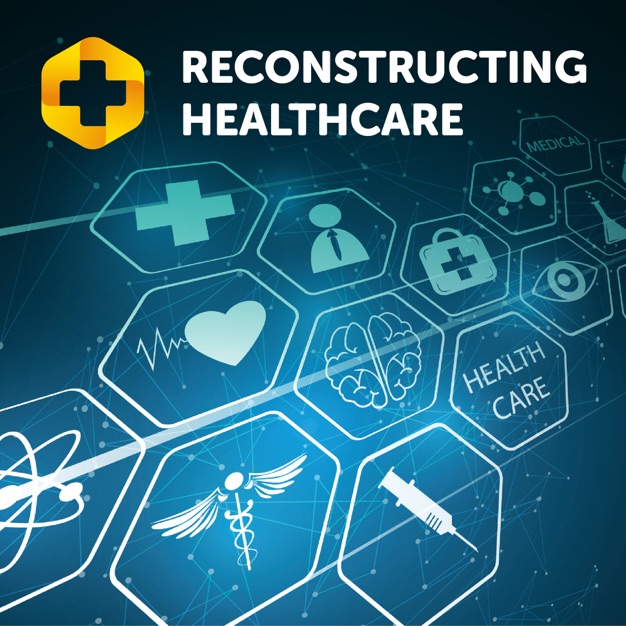 Reconstructing Healthcare: Innovative Solutions For Employers To Lower Their Healthcare Costs
Reconstructing Healthcare: Innovative Solutions For Employers To Lower Their Healthcare Costs
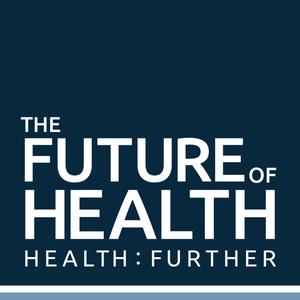 The Future of Health
The Future of Health
 Outcomes Rocket
Outcomes Rocket
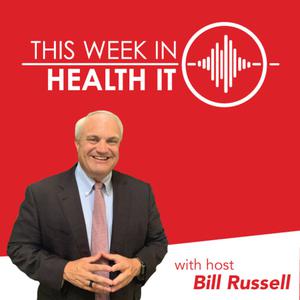 This Week in Health IT
This Week in Health IT
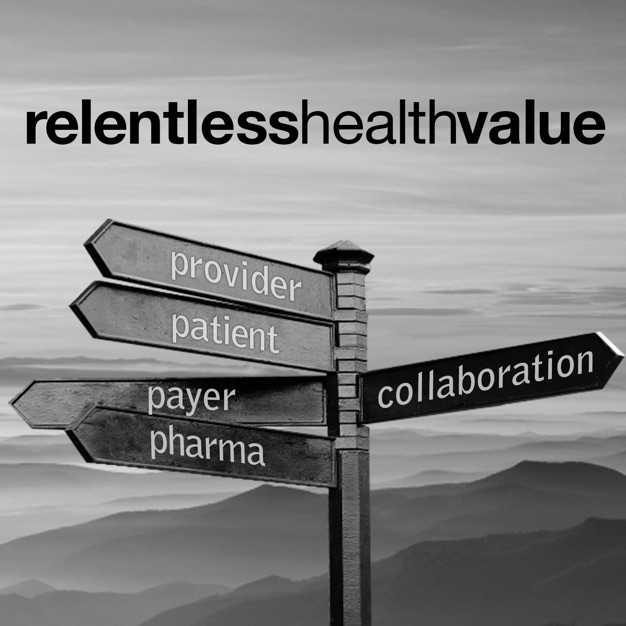 Relentless Health Value
Relentless Health Value